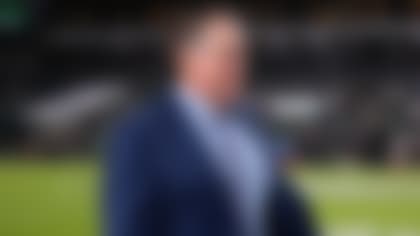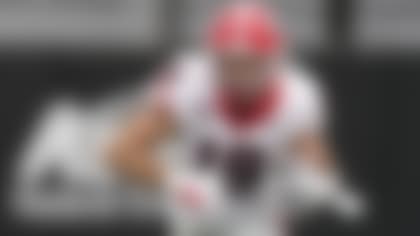Three running backs were selected within the first five picks of the 2005 NFL Draft, while Aaron Rodgers fell to the 24th pick. We all know that the running back position has been devalued, but Ezekiel Elliott, like Todd Gurley last season, has the high-end talent to come off the board inside the first 10 picks.
While the argument can often be made that teams can find running backs much later in the draft, this year I don't see the same depth of running back talent that we usually see. With that said, running backs like Kenneth Dixon and Devontae Booker offer safe, productive options on Day 2 (Rounds 2-3) of the draft and they will not be lacking in suitors.
Will teams decide bigger is better this year? Powerful rusher Derrick Henry had more than 400 touches last season while Jordan Howard missed several games due to his punishing style as a runner.
Let's explore the 2016 running back class.
Teams with greatest need
Top 5 players at the position
1. Ezekiel Elliott: While he's had to handle a heavy workload over the last two seasons, Elliott should still come out of the gates as one of the most productive young running backs in the league.
2. Derrick Henry: Henry needs early running room as he's not a creator in the backfield, but once he gets up a full head of steam, he is a nightmare with his ability to punish on the second and third levels or take it to the house. Henry should come in and provide immediate production as a starter.
3. Jordan Howard: Staying healthy in the NFL is a legitimate concern for Howard considering his relentless running style. If he can stay healthy, Howard has the ability to become an instant factor as an NFL starter.
4. Paul Perkins: If Perkins finds the right scheme and team fits for his talents, he could become a high-end committee back early on.
T-5. Devontae Booker: Booker isn't fast, but he plays at a consistent speed and should have enough quickness to be consistently productive as an NFL starting running back.
T-5. Kenneth Dixon: Dixon has all the traits of being a quality, three-down starter in the NFL, but his frame and suspect pass protection could be long-term concerns.
Sources Tell Us
"You have to be a little bit rare to get drafted inside of the top half of the first (round) if you are a running back. (Elliott is) rare. He's been durable, he's good in short yardage, he can catch, he can block, he's got wiggle, he's got speed, he can break tackles. He doesn't have any holes that force him off the field." -- NFC general manager on Ezekiel Elliott
Most overrated
Alex Collins: Collins is steady with quick feet, touchdown production and an aggressive finishing touch. However, I see him as a souped-up BenJarvus Green-Ellis, meaning he will be more of a worker bee than creator. Collins is physical, but his restricted stride length doesn't allow him to break as many tackles as expected and his one-speed rushing style will make it more difficult to elude speedy linebackers and safeties in the pros. I see Collins as a solid committee back with some starter potential, but a limited ceiling.
Most underrated
Jonathan Williams: Collins' Arkansas teammate seems to be the forgotten running back in this draft class thanks, in part, to an injury that cost him his 2015 season. Williams has starting-caliber size, very good foot quickness and lateral agility as well as an above-average feel and instincts for interior rushing lanes. He has plenty of tread left on the tires after sharing the rock with Collins in 2014 and missing the 2015 season. With an ability to operate on third downs and surprising elusiveness for a bigger running back, I believe that Williams can become a future starter in the league.
Boom or bust
Jordan Howard: The tape would indicate that Howard might be the second-best running back in this draft. Howard is a natural runner with excellent vision and finishes each run like it's his last. He rushed for at least 145 yards in every full game he played in and rose to the occasion against the best competition at both UAB and Indiana. There's one problem: Howard's punishing rushing style is great for grinding out additional yardage but creates excessive wear and tear on the body. Howard missed four games and part of three others with injuries to his knee and ankle. Howard has the talent, but it won't matter if he's not healthy.
Sleeper alert
Jhurell Pressley: Pressley led the nation in yards per attempt in 2014 at 9.5 yards, and he averaged 7.8 yards per carry over last final three seasons. Granted, some teams might be turned off by the fact that part of the Lobos' offense revolves around an option attack, but Pressley's juice around the corner and competitive drive as a runner transcends scheme. Pressley's biggest issue is that he's not much of a pass-catcher, so he will have to play the part of "change-of-pace" running back, but that shouldn't be an issue. With 25 bench-press reps and a 4.38-second 40-yard dash at his pro day, Pressley is squarely on the board for many teams.
Follow Lance Zierlein on Twitter @LanceZierlein.












